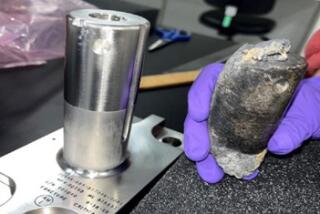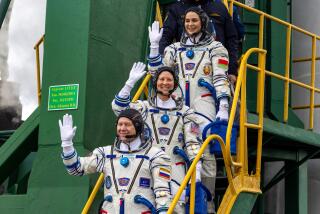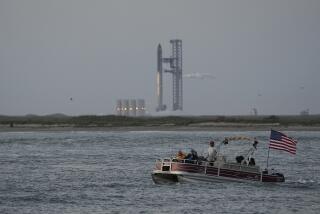NASA: Russian rocket crash won’t affect astronaut transport to ISS
Russia’s dramatic launch and crash of an unmanned Proton rocket holding three Glonass navigation satellites is not expected to affect upcoming manned trips to the orbiting International Space Station, NASA officials said.
The Proton-M rocket began to waver roughly 10 seconds after liftoff, stalled and fell nose over tail as it crashed back onto the ground in an enormous fireball, as seen in video footage of the launch. The incident is the latest in a series of issues for Russian space launches.
But Tuesday’s disaster should not affect trips made by manned Russian spacecraft to the International Space Station, according to NASA officials. Russian Soyuz rockets have been used to transport astronauts to the International Space Station, particularly since the decommissioning of the U.S. space shuttle fleet in 2011.
“The Proton rocket is a very different design than the Soyuz rocket, and we expect no impact to Soyuz launches,” William Gerstenmaier, NASA’s associate administrator for Human Exploration and Operations, said in a statement.
The crash released 600 tons of toxic fuel at the Baikonur facility that Russia rents from Kazakhstan, according to a Times report on the incident. Work at the facility is likely to be suspended for two to three months during the cleanup, according to the Russian state news agency RIA Novosti.
“Should they request it, NASA is prepared to assist Roscosmos in failure analysis,” Gerstenmaier continued in his statement. “This is a tough loss.”







